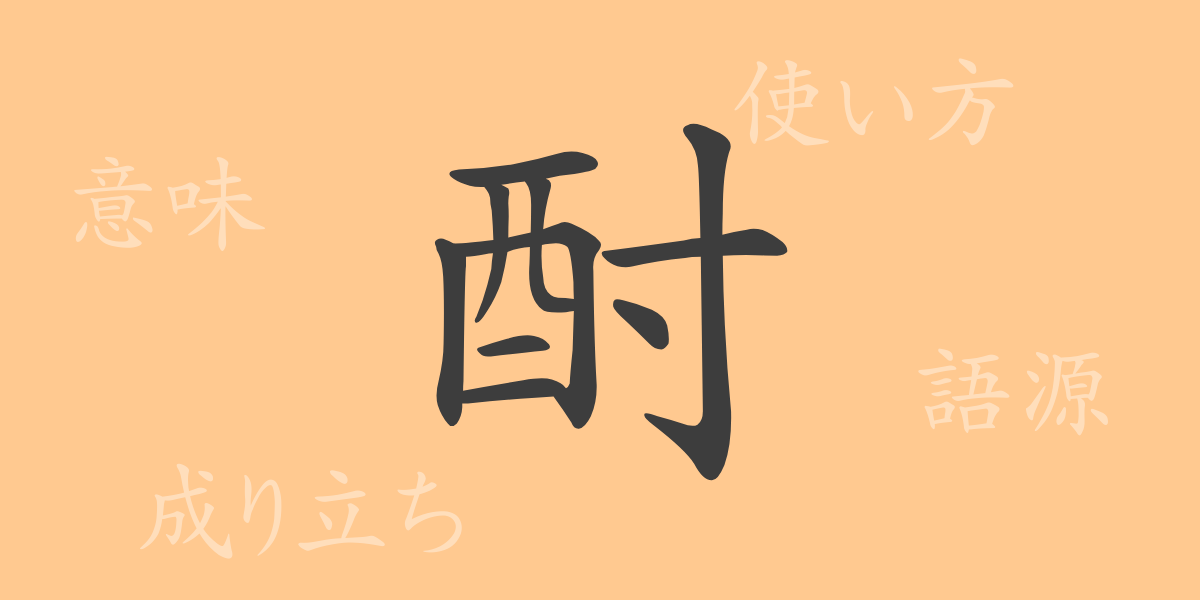Japanese culture is renowned for its intricate and beautiful character system. Today, we spotlight one of Japan’s common kanji, ‘酎(チュウ)’, exploring its allure. This character occupies a special place in the lives of the Japanese, tied to a word that has been cherished for ages. From the origins of ‘酎’ to its meanings, usages, readings, and its reflection of the Japanese spirit through idioms and proverbs, this article unveils the complete story of this kanji.
Origins of ‘酎(チュウ)’
The kanji ‘酎’ originated from ancient Chinese script, derived from words symbolizing mash or yeast used in alcohol production. Essential in brewing, this element transformed over time and was introduced to Japan as ‘酎’, specifically denoting shochu, a distinct spirit differing from sake, shaping a unique alcohol culture in Japan.
Meaning and Usage of ‘酎(チュウ)’
‘酎’ primarily relates to alcoholic beverages. In Japan, ‘酎’ is widely recognized in the form of ‘焼酎(しょうちゅう)’, a traditional distilled liquor made from various ingredients like rice, barley, and sweet potatoes. The character also appears in terms such as ‘酎ハイ’, denoting cocktails based on shochu.
Readings, Stroke Count, and Radical of ‘酎(チュウ)’
Let’s delve into the details of the kanji ‘酎’ regarding its pronunciation, structure, and etymology:
- Readings: On’yomi ‘チュウ’, Kun’yomi ‘かもす’
- Stroke Count: 10 strokes.
- Radical: ‘酉’ (とりへん), common to characters related to alcohol.
Phrases, Idioms, and Proverbs Involving ‘酎(チュウ)’
Idioms and phrases containing ‘酎’ reflect its deep cultural integration and the importance of alcohol in social life:
- ‘酎を交わす’ – Describes the act of bonding over shared drinks.
- ‘酎の助’ – A term for someone fond of alcohol.
Conclusion on ‘酎(チュウ)’
This exploration focused on the kanji ‘酎’, highlighting its meanings, usages, and the rich cultural tapestry it weaves in Japanese life. ‘酎’ not only symbolizes Japan’s traditional alcoholic culture but also embeds deep respect and love for it within the Japanese community. Understanding the historical and cultural background of ‘酎’ offers insight into the Japanese appreciation for and reverence of their brewing traditions, transcending its mere symbolic representation in writing.

























